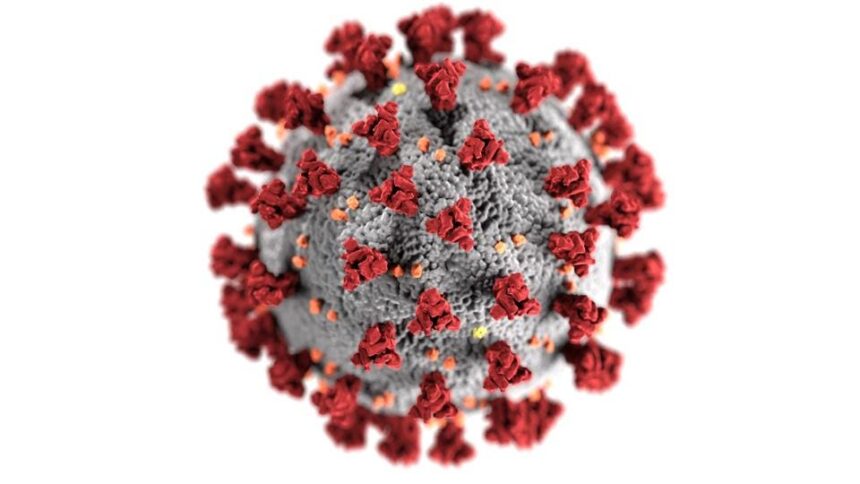World Health Organization officials first learned about a cluster of cases of pneumonia in the Hubei Province of China on December 31, 2019. This represented the initial report of what soon became known as Covid-19, the pandemic that has affected the world in myriad ways. The human suffering has been extraordinary. The scientific advancements have been remarkable. As we now reach the fifth anniversary of this pandemic, it’s worth reviewing where we’ve been, how we got here, and where we may be going.
The Beginnings Of Covid-19
Chinese officials reported to the WHO on December 31, 2019, that over 40 cases of pneumonia of unknown cause had been detected in Wuhan City. Cases were clustered near the Huanan seafood market, suggesting the zoonotic transmission of an infectious agent from an animal in the market. However, the report released by the WHO on January 5, 2020, noted that, “no evidence of significant human-to-human transmission,” had been observed.
Chinese researchers quickly isolated and sequenced the causative agent, a novel coronavirus initially named 2019-nCoV. A genomic analysis showed that this virus was related to, but genetically distinct from SARS-CoV, the coronavirus associated with 2002-2003 SARS pandemic. The 2019-nCoV virus thus was renamed SARS-CoV-2. Because previous coronavirus outbreaks associated with the SARS-CoV and MERS-CoV viruses resulted from zoonotic transfers, researchers theorized that SARS-CoV-2 likewise entered the human population via a zoonotic transmission. But Chinese authorities quickly shut down and disinfected the Huanan market, complicating efforts to conclusively identify the source of the virus.
Despite the initial statement by the WHO, human-to-human transmission was occurring.
By mid-January, people infected with the virus had been detected in several countries. The CDC reported a laboratory-confirmed case in the U.S. on January 21, 2020. SARS-CoV-2 continued to spread. Countries throughout the world began implementing travel restrictions. The World Health Organization declared Covid-19 a pandemic on March 11, 2020. Schools, restaurants, and bars closed. Working from home became the norm for many people. The world changed. Just a year later, an estimated 2.5 million people worldwide already had died.
Current State Of The Covid-19 Pandemic
An estimated 777 million cases of Covid-19 and 7.1 million deaths have occurred since the pandemic began, according to the WHO. There have been over 100 million cases and approximately 1.2 million deaths in the United States. Global life expectancy declined by roughly a year and a half during the early stages of the pandemic. Currently, though, the number of new cases and deaths per week are low. Roughly 50,000 new cases and 500 deaths were reported by the WHO during the week ending on December 8, 2024, a steep decline from the numbers reported earlier in the pandemic.
The Evolution Of SARS-CoV-2
The SARS-CoV-2 virus has changed during the past five years. That’s not at all surprising. Viruses exhibit a high mutation rate. They change. And mutants that have some selective advantage will predominate, outcompeting earlier variants. For SARS-CoV-2, these selective advantages include increased transmissibility, enhanced evasion of the immune system, and increased disease severity. The original form of the virus quickly was replaced by the Alpha and then the Delta variants. The Omicron variant first was detected in late 2021 and has remained the dominant variant since then. Each variant was more transmissible than its predecessors. Subvariants of Omicron, like JN.1, have arisen, but no major departure from the Omicron variant has been identified.
Development Of Covid-19 Vaccines
Healthcare providers administers Covid-19 vaccine.
 By the end of 2020, the FDA issued emergency use authorizations for Covid-19 vaccines produced by … [+]Getty Images
By the end of 2020, the FDA issued emergency use authorizations for Covid-19 vaccines produced by … [+]Getty Images
The trajectory of the pandemic changed December 11, 2020 when the FDA issued an emergency use authorization for the Pfizer-BioNTech mRNA vaccine. A week later, an EUA was issued for the Moderna mRNA vaccine. In large clinical trials, both vaccines were shown to be highly effective at preventing severe Covid-19 and death from Covid-19. Additionally, both vaccines were shown to be very safe.
Subsequent research showed that the immunity provided by these vaccines waned over time. Additionally, mutations that occurred in the virus decreased the effectiveness of the initial vaccines. Thus, periodic booster shots have been recommended and new formulations have been developed to keep pace with the changing virus. But the availability of these vaccines dramatically changed the course of the pandemic.
The Importance Of Basic Research
Words such as “novel” and “unprecedented’” have been used throughout the pandemic. It’s important to note, though, that our understanding of Covid-19 and the development of the mRNA vaccines relied on decades of basic research. This history of prior research should not be ignored.
Virologists have been studying coronaviruses for decades. Coronaviruses that infect humans first were identified in the 1960s. Although these human coronaviruses only were associated with the common cold, they have been studied extensively. Coronaviruses that infect mice, like mouse hepatitis virus, also have been studied extensively. This basic research helped scientists better understand fundamental aspects of viral pathogenesis. And this research prepared us for SARS-CoV, MERS, and SARS-CoV-2.
Decades of basic research also preceded the development of the Pfizer and Moderna mRNA vaccines. We never before had human vaccines that use the mRNA platform, but the idea has been in development for many years. Indeed, Drs. Katalin Karikó and Drew Weissman were awarded the Nobel Prize in Physiology or Medicine in 2023 for their work leading to the development of these safe and effective vaccines. But their important work was published in 2005, well before the Covid-19 pandemic. And their research was dependent on experiments done by other scientists even earlier.
Stigma And Misinformation Exacerbated Covid-19
The Covid-19 pandemic showed the dangers associated with stigma. During the early days of the pandemic, media reports typically linked the virus to a place. The Chinese coronavirus. The Wuhan virus. Former President Trump used more derogatory and inflammatory terms. The results? Hate crimes against Asian-Americans increased.
Misinformation and disinformation also exacerbated the Covid-19 pandemic. During the Spring of 2020, for example, former President Trump and others repeatedly championed the use of hydroxychloroquine as a treatment for Covid-19. Advocates of HCQ, an anti-malarial drug, typically pointed to a paper published in the International Journal of Antimicrobial Agents. Scientists, however, immediately questioned the study design and the data analysis. Subsequent, better designed experiments by other researchers cast more doubt on the efficacy of HCQ. But those studies did not get broad media coverage. The damage had been done. The journal recently retracted the original article.
This certainly wasn’t the only research article about Covid-19 that made a big media splash, only to be questioned by the scientific establishment. In early 2020, researchers published on the preprint server bioRciv, a paper in which they claimed that “uncanny” sequence similarities existed between SARS-CoV-2 and HIV. The authors concluded by provocatively stating that the similarities were, “unlikely to be fortuitous.” The conclusions in this paper also were criticized by other scientists and the paper was withdrawn. Words matter. Science matters.
The Future Of Covid-19
SARS-CoV-2 and Covid-19 are not going away. The disease now is endemic. When we consider viruses that cause potentially acute respiratory illness, we must include SARS-CoV-2 in the list with influenza virus, RSV, and others. And SARS-CoV-2 will continue to mutate. This means that updated vaccine formulations periodically will be needed. Most likely, a new Covid-19 vaccine will be recommended each year.
The genetic changes that naturally occur in SARS-CoV-2 also means that a new, more dangerous variant could emerge. A variant with increased transmission or virulence could lead to an uptick in cases. Thus, continued surveillance and genetic analysis of viral isolates remains essential.
Finally, research into long Covid must continue. For many people, the constellation of symptoms associated with long Covid is a daily reminder of their previous infection. The cause is not known. Some researchers have hypothesized that an undetectable reservoir of the virus remains in some people. Others have hypothesized that a SARS-CoV-2 infection may triggers an autoimmune disease or the reactivation of Epstein-Barr virus. Perhaps, some scientists have speculated, Covid-19 can lead to alterations in the gut microbiome, which subsequently lead to long Covid. The cause of long Covid needs to be determined and treatments need to be developed. The fifth anniversary of Covid-19 represents a logical time to evaluate where we are, remember how we got here, and consider where we may be going. But this milestone certainly does not represent an endpoint. We must remain vigilante. Changes in SARS-CoV-2 will occur. And another novel pathogen may arise.
Credit: Forbes








